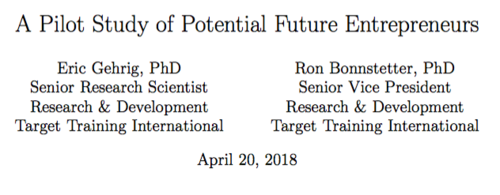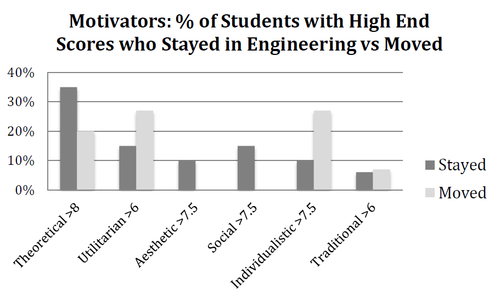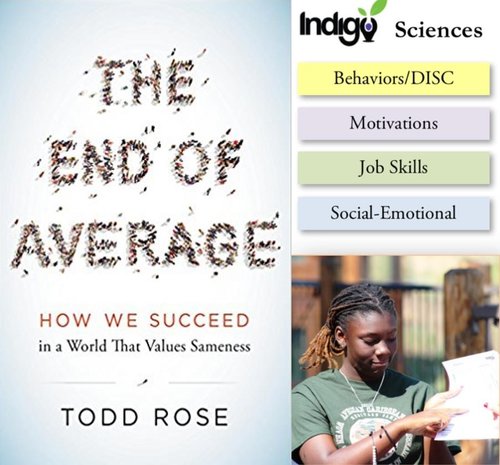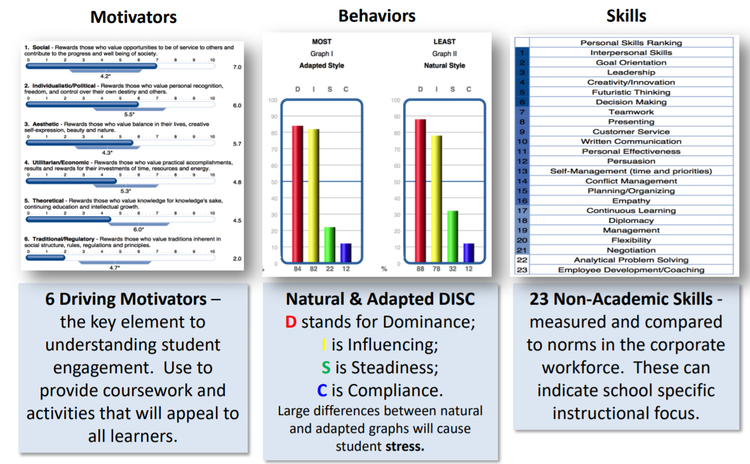Indigo's Research Library
The Indigo Assessment is scientifically validated with decades of research behind it at Target Training International. The following articles discuss the concepts and peer reviewed research on the science behind our Indigo Assessment.

Entrepreneurship Algorithm Study
Target Training International‘s (TTI) researcher, Dr. Eric Gehrig, statistically validated Indigo’s entrepreneurship algorithm for identifying students who are high potential entrepreneurs. This paper opens up opportunities for larger government funded research through organizations like the NSF.

"What Can DISC and Motivation Profiles Disclose About Student Retention in Engineering?"
Indigo Education Company teamed up with the engineering departments of University of Denver to observe patterns in the DISC and Motivator traits of students through three years in the engineering program.

"Ending the Average in Education"
By Indigo’s CEO Sheri A. Smith, M.A. This study describes the importance of student individuality and explores the idea of average outlined in Todd Rose’s The End of Average.

Why We’re Different
Assessment validity, reliability, measurement variables, competitor landscape, customers and partners.

TTI Technical Report
Our technology partner, Target Training International, created this technical report describing in depth the science behind the Indigo Assessment.

Exploring Non-Cognitive Reasons Behind Success After Failure
Using the Indigo Assessment, Arizona State University’s Institute for the Science of Teaching and Learning studied the difference in soft-skills possessed by the students who passed a course the first time and students who failed a course, but passed on a second attempt.
Peer Reviewed Research based on TTI's Technology behind the Indigo Assessment
Professional Competency Self-Efficacy of Undergraduate Environmental Studies Students: A Case Study of Gender Differences and Longitudinal Change (2021) David Gosselin at University of Nebraska–Lincoln uses TTI data to analyze 21st century skills development in university students and the differences between male and female student perceptions about their 21st century skills. Read More Download Paper
Response Process Validation Protocol Using Neurophenomenological Gamma Asymmetry (2018)
TTI SI Style Insights® v Big 5 Personality Inventory: University Students Validation Study (2018)
TTI SI Style Insights® v Big 5 Personality Inventory: A Validation Comparison Study (2017)
TTI Success Insights® 2017 Reliability Study: Style and Motivation Insights (2017)
How Do Online Course Features Influence Student Performance (2016)
Predicting Academic Performance in Surgical Training (2015)
Application of Business-Oriented Assessments to Improve Coach and Player Interactions: A Case Study (2014)
A Leadership Profile of Entrepreneurs Across the Generations: An Exploratory Study (2013)
Creating, Educating and Assessing a New Class of Entrepreneurial Minded Engineers (2011)
Freshmen Engineering Student Personal Attribute Workshop Findings: A Retention Issue (2008)
Exploring Non-Cognitive Reasons Behind Success After Failure
